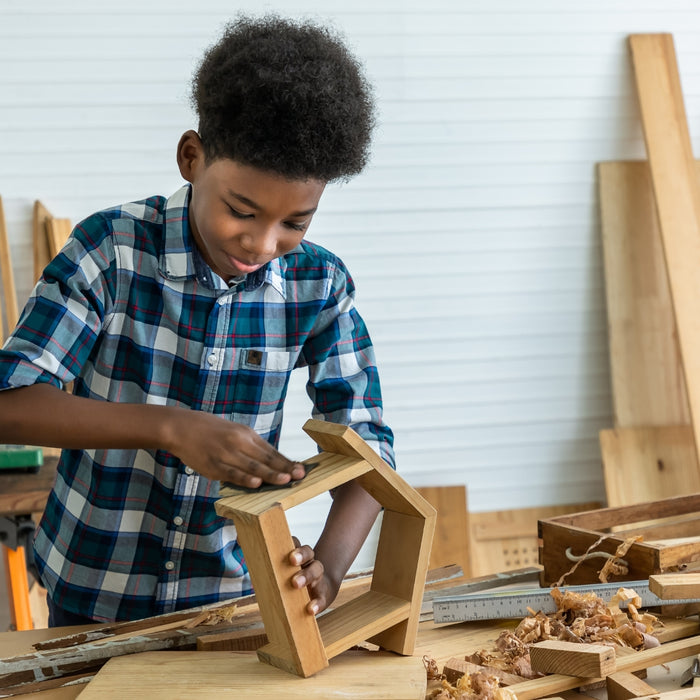
Listen to the article:

Have you ever gone out of your way to protect your kids from disappointment? Allowing children to experiencing disappointment and failure every once in a while is actually beneficial.
It seems that many people in today’s society actually go out of their way to shield kids from getting their feelings hurt, especially when it comes to group activities. For instance, preschools prohibit competitive games such as musical chairs, and little league soccer teams don’t keep score in an effort to protect children from the hurt feelings failure can cause.
Teach Kids to Cope
However, the reality is that learning to handle failure is a good skill and the key is to help them work through the struggle so they’ll learn to handle it in the future. Life comes with disappointments and challenges and when parents teach kids how to cope, they’ll develop essential characteristics that are crucial for happiness and success.
It’s natural for parents to want to protect kids and make sure they’re happy. However, studies indicate that a healthy self-esteem does not make a child successful in school or beyond. Instead it is the experience of success that increases the confidence and self-esteem, and those personal experiences will ultimately involve setbacks as well as victory.
So, before you ask the coach to give your child a chance at pitching or you find yourself tempted to rebuild the block dinosaur when it separates into hundreds of pieces, take a moment and decide if a better solution is helping him through the struggle. No one knows your child better than you so determine the amount of failure you can endure watching him go through when opportunities arise.
Encourage Patience
Kids struggle with being patient whether it is waiting a couple hours to unwrap a birthday gift at the party or saving a piece of candy until after dinner, teaching them the skill of waiting and exercising self-control will benefit them throughout life.
Many of us want instant gratification, but the old adage “something worth having is something worth waiting for” sums it up nicely. In 1968, a psychology professor at Columbia University, Walter Mischel, Ph.D. began a study on patience and self-control, which initially consisted of a group 4-year-old children. Interestingly, he followed the progress of many of them into adulthood and those who displayed impatience in preschool struggled with waiting throughout life, many of them becoming bullies or struggling with drug use. However, those who were enduring and well practiced in self-control were patient enough to wait for acceptance into better colleges.
Encouraging these skills can be done with ease in daily tasks through setting up house rules. For instance, require that your child finish his homework before playing outside, or hanging up his coat and backpack before grabbing a snack. Delaying gratification will serve them again and again.
Offer Guidance
Rather than protecting your child from disappointment, offer him guidance and empathy. This will help prepare him for setbacks. Engage in a conversation about the disappointment to understand what transpired and how it made your child feel. Using this technique will get him brainstorming so the next time something similar occurs, he may be better equipped to handle it differently.
Avoid Giving Too Much Praise
Children need praise and encouragement but giving it too often can sometimes hinder a child from developing confidence. While hearing “great job” or getting a pat on the back is nice even as adults, teaching your child the significance of valuing himself even without validation from others is extremely important.
During this process be observant and if your child is struggling with something extremely difficult offer guidance, love, and understanding. Likewise, if allowing your child to experience a failure would create too much humiliation for him, wait for another opportunity to teach him about responsibility.
Thought Starters:
- Reflecting on the Balance Between Protecting and Allowing Failure: Consider how you might be shielding your child from disappointment or failure. Think about situations where allowing your child to experience and learn from failure might be more beneficial in the long run.
- Teaching Patience and Self-Control: Reflect on ways to incorporate lessons of patience and self-control into your child’s daily life. Contemplate how enforcing simple house rules or encouraging delayed gratification could help them develop these essential skills.
- Guiding Children Through Disappointments: Think about how you can offer guidance and empathy to your child when they face setbacks. Consider how engaging them in conversations about their disappointments can help them brainstorm and prepare for similar situations in the future.
- Evaluating the Impact of Praise: Reflect on the amount and type of praise you give your child. Consider how you can balance praise with encouraging your child to find value and confidence in themselves without always needing external validation.
- Observing and Responding to Your Child’s Struggles: Consider how you can be observant of your child’s struggles and offer support. Think about how to balance letting them experience failure with stepping in to provide guidance, love, and understanding when the challenge is too great or the risk of humiliation is high.
Suggested Questions To Ask Your Child:
- How did you feel about what happened in a specific situation where the child experienced failure or disappointment?
This question invites the child to express their feelings about a particular failure or disappointment, aligning with the article's suggestion to engage in conversations about such experiences. It opens a pathway for discussing emotions and brainstorming future responses.
- What do you think you could do differently next time you're in a similar situation?
This question encourages the child to think constructively about how they might handle a similar situation in the future, fostering problem-solving skills. It reflects the article’s advice on guiding children to learn from their failures.
- What are some things you learned from this experience?
Asking about lessons learned from a failure or setback helps children see the value in challenging experiences. This approach is in line with the article’s emphasis on helping children understand that failure can be a learning opportunity.
- Can you think of a time when waiting or being patient really paid off for you?
This question is aimed at reinforcing the concept of patience and delayed gratification discussed in the article. It helps children recognize the benefits of patience and self-control in their own experiences.
- What are some things you're really proud of about yourself, regardless of what others think?
This question encourages the child to focus on self-validation rather than external praise, as suggested in the article. It helps build self-confidence and an internal sense of worth, independent of others’ opinions or comparisons.



